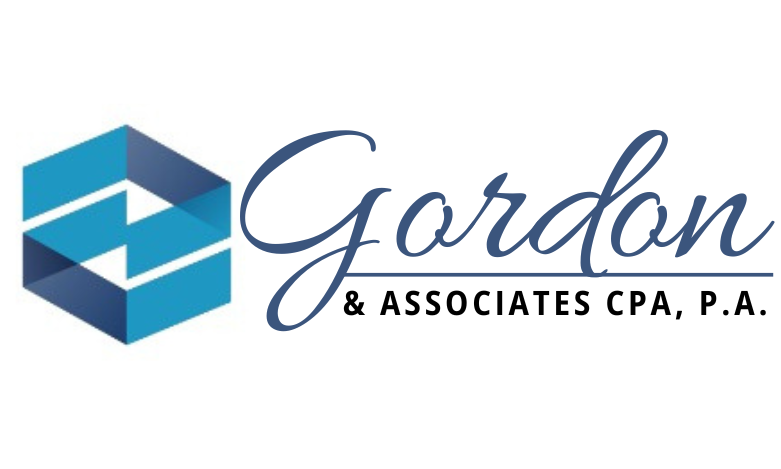Year-End Bonuses:
Best Practices for Small Businesses

As the year comes to a close, many small business owners consider awarding year-end bonuses to their employees. Bonuses can serve as a powerful tool to reward hard work, boost morale, and increase employee retention. However, to make the most of this investment, it’s important to approach bonuses strategically, taking into account motivational factors, financial feasibility, and tax implications. Here’s a guide to help small businesses navigate year-end bonuses effectively.
Why Offer Year-End Bonuses?
Year-end bonuses are more than just monetary rewards; they are an opportunity to show appreciation for your team’s contributions throughout the year. They can:
- Boost Employee Morale: Demonstrating recognition for hard work fosters a sense of loyalty and motivation.
- Improve Retention: Employees who feel valued are less likely to seek opportunities elsewhere.
- Enhance Productivity: Incentivizing performance with bonuses encourages employees to maintain high levels of productivity.
Key Considerations for Awarding Bonuses
1. Align Bonuses with Business Performance
Bonuses should reflect your business’s financial health. If your company had a profitable year, rewarding employees is a way to share the success. However, if finances are tight, consider smaller bonuses or alternative forms of recognition.
Tip: Be transparent about how bonuses are calculated to build trust and understanding.
2. Choose a Bonus Structure
Decide on the type of bonus that best suits your business model and team. Common structures include:
- Flat Bonuses: A fixed amount for all employees, regardless of position or tenure.
- Performance-Based Bonuses: Rewards tied to individual or team achievements.
- Profit-Sharing Bonuses: Bonuses based on the company’s overall profitability.
- Holiday Gifts: Non-cash bonuses like gift cards, extra paid time off, or wellness perks.
Tip: Tailor your approach to match your company culture and financial resources.
3. Understand Tax Implications
Bonuses are considered supplemental wages and are subject to federal and state taxes. The IRS allows employers to withhold taxes on bonuses using two methods:
- Aggregate Method: Adds the bonus to the employee’s regular paycheck and applies the regular withholding rate.
- Flat Rate Method: Withholds taxes at a flat 22% rate for bonuses up to $1 million.
Tip: Work with your accountant to ensure bonuses are properly reported and taxed.
4. Communicate Clearly with Employees
Set expectations about bonuses early in the year to avoid misunderstandings. Let employees know:
- Whether bonuses are guaranteed or discretionary.
- How bonuses are calculated (e.g., tied to individual performance, company performance, or a combination).
- When they can expect to receive their bonuses.
Tip: Use a letter or a meeting to explain the bonus structure, emphasizing how it ties into the company’s goals and achievements.
Best Practices for Motivating Employees with Bonuses
1. Link Bonuses to Performance Metrics
Tying bonuses to measurable goals ensures fairness and encourages accountability. For example, set benchmarks like meeting sales targets, completing projects on time, or exceeding customer satisfaction metrics.
Tip: Use key performance indicators (KPIs) to establish clear criteria for bonus eligibility.
2. Offer Non-Monetary Incentives
If cash bonuses aren’t feasible, consider other forms of recognition, such as:
- Additional paid time off.
- Flexible work schedules.
- Professional development opportunities.
- Team-building events or holiday parties.
Tip: Employees value genuine appreciation; even a heartfelt thank-you note can make a difference.
3. Recognize Team Efforts
While individual bonuses are important, consider rewarding team accomplishments as well. This fosters collaboration and encourages employees to support one another in achieving shared goals.
Tip: Acknowledge the collective contributions of your team during a year-end meeting or celebration.
4. Plan Ahead for Next Year’s Bonuses
Incorporate bonuses into your annual budget to ensure you have the funds available. This proactive approach allows you to reward employees without straining your finances.
Tip: Set up a bonus pool based on a percentage of projected profits to provide flexibility.
Year-end bonuses are a valuable tool for showing appreciation and motivating your employees, but they require careful planning to maximize their impact. By aligning bonuses with business performance, considering tax implications, and communicating clearly with your team, you can create a win-win situation for your business and your employees.
Subscribe to our newsletter to receive our latest blog directly to your inbox.
- Business Financial Management
- Regulations and Compliance
- Tax Planning and Compliance
- Tax Planning and Strategies
- Year-End Bonuses: Best Practices for Small Businesses
 Year-end bonuses are a powerful way to reward employees, boost morale, and increase retention. To maximize their impact, businesses should align bonuses with financial performance, choose the right structure (flat, performance-based, or profit-sharing), and consider tax implications. Clear communication about bonus criteria and timing is essential. If cash bonuses aren’t feasible, alternative rewards like extra time off or professional development can still show appreciation. Planning ahead ensures bonuses remain a sustainable part of your business strategy.
Year-end bonuses are a powerful way to reward employees, boost morale, and increase retention. To maximize their impact, businesses should align bonuses with financial performance, choose the right structure (flat, performance-based, or profit-sharing), and consider tax implications. Clear communication about bonus criteria and timing is essential. If cash bonuses aren’t feasible, alternative rewards like extra time off or professional development can still show appreciation. Planning ahead ensures bonuses remain a sustainable part of your business strategy. - Year-End Tax Planning Tips for Small Businesses
 As the year ends, small businesses can take strategic steps to minimize tax liability and prepare for financial success. Reviewing financial statements, deferring income, and maximizing deductions—such as Section 179 depreciation and retirement contributions—can help reduce taxable income. Leveraging tax credits, managing inventory write-offs, and planning for estimated taxes further optimize savings. Now is also the time to assess your business structure for potential tax advantages. Consult a CPA to ensure compliance and maximize tax benefits before the year closes.
As the year ends, small businesses can take strategic steps to minimize tax liability and prepare for financial success. Reviewing financial statements, deferring income, and maximizing deductions—such as Section 179 depreciation and retirement contributions—can help reduce taxable income. Leveraging tax credits, managing inventory write-offs, and planning for estimated taxes further optimize savings. Now is also the time to assess your business structure for potential tax advantages. Consult a CPA to ensure compliance and maximize tax benefits before the year closes. - The Benefits of Tax-Advantaged Retirement Accounts: A Comprehensive Guide
 Tax-advantaged retirement accounts help individuals and business owners build financial security while reducing their tax burden. Traditional IRAs and 401(k)s provide immediate tax deductions, while Roth IRAs and Roth 401(k)s offer tax-free withdrawals in retirement. Self-employed individuals can benefit from SEP IRAs and SIMPLE IRAs, which allow for higher contributions and tax savings. Choosing the right account depends on your current and future tax situation. By maximizing contributions, taking advantage of employer matches, and investing wisely, you can grow your retirement savings efficiently.
Tax-advantaged retirement accounts help individuals and business owners build financial security while reducing their tax burden. Traditional IRAs and 401(k)s provide immediate tax deductions, while Roth IRAs and Roth 401(k)s offer tax-free withdrawals in retirement. Self-employed individuals can benefit from SEP IRAs and SIMPLE IRAs, which allow for higher contributions and tax savings. Choosing the right account depends on your current and future tax situation. By maximizing contributions, taking advantage of employer matches, and investing wisely, you can grow your retirement savings efficiently.

